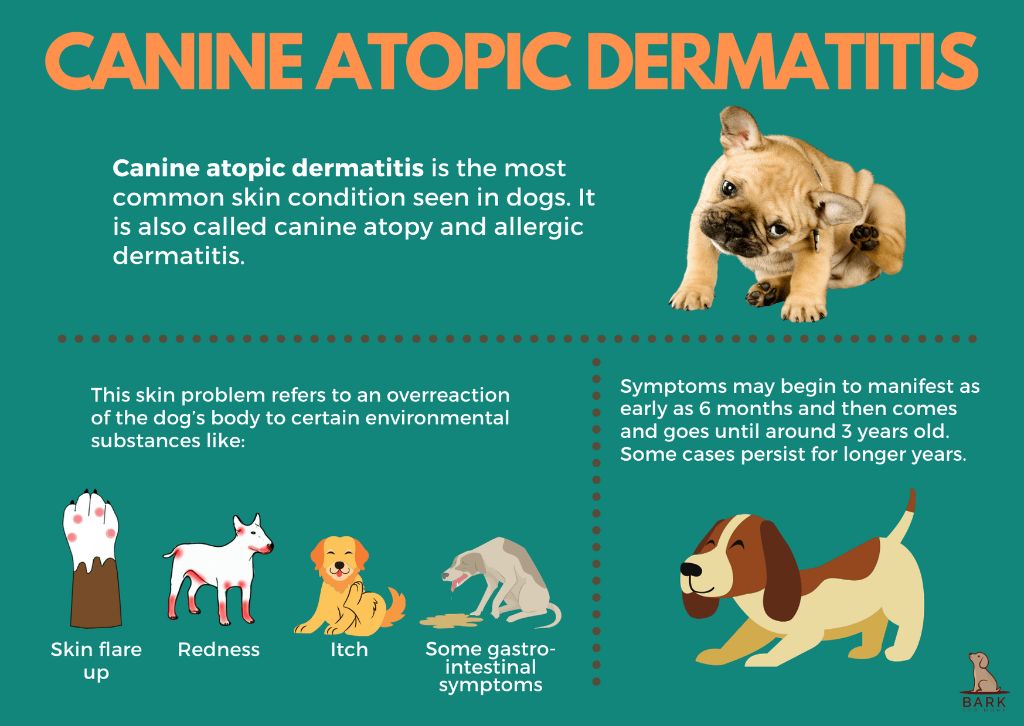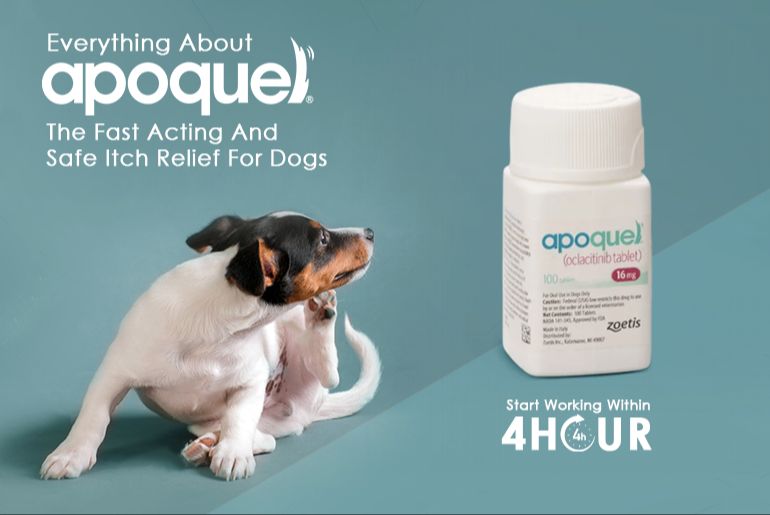Introduction
Apoquel and Zyrtec are two common allergy medications used in dogs (Source). Apoquel is a newer prescription medication specifically designed to treat itchiness and skin allergies in dogs. Zyrtec, on the other hand, is an over-the-counter antihistamine also used in humans that can be given to dogs. While both aim to provide allergy relief, they have different mechanisms of action and usages. The purpose of this article is to provide a detailed comparison of Apoquel versus Zyrtec to help dog owners understand which medication may be better suited for their pet’s allergies.
What are Apoquel and Zyrtec?
Apoquel is a newer injectable medication specifically developed for the treatment of allergies and itchiness in dogs. Its active ingredient is oclacitinib, which targets certain pathways involved in inflammation and allergic reactions (APOQUEL®). Apoquel works differently than traditional antihistamines and corticosteroids.
Zyrtec (cetirizine), on the other hand, is an oral antihistamine that was originally developed for human use. It blocks the effects of histamine, which is released during allergic reactions. Zyrtec can provide relief from allergy symptoms in both humans and dogs when given at the appropriate dose (Oclacitinib).
The key difference is that Apoquel was specifically designed for canine allergies, while Zyrtec has broader uses but can also be given to dogs. Both aim to control allergy symptoms, but have different mechanisms of action.
Mechanisms of action
Apoquel and Zyrtec work in different ways to treat allergies and itchiness in dogs. According to the Pet Dermatology Clinic [1], Apoquel targets itchiness and allergic reactions by inhibiting the production of cytokines, which are proteins involved in inflammatory responses. Specifically, Apoquel blocks interleukin-31 receptors, which play a key role in triggering itchiness and inflammation. By inhibiting cytokine activity, Apoquel can provide rapid relief from itch within 24 hours.

In contrast, Zyrtec is an antihistamine that works by blocking histamine receptors [2]. Histamine is another mediator involved in allergic reactions that contributes to itchiness, hives, and other symptoms. By preventing histamine from binding to its receptors, Zyrtec can help control the allergic response and reduce itching. However, antihistamines like Zyrtec may take longer to have an effect compared to Apoquel.
In summary, while both medications aim to reduce itchiness caused by allergies, Apoquel targets the upstream cytokine signals while Zyrtec blocks the downstream histamine effects. The different mechanisms explain why Apoquel may act more rapidly, but Zyrtec may have a lower side effect profile.
Effectiveness for dog allergies
Both Apoquel and Zyrtec can help relieve allergy symptoms in dogs, but research shows Apoquel is more effective for most dogs.
According to veterinary dermatologists, Apoquel provides “rapid, profound relief of itch and inflammation” in dogs with allergies and atopic dermatitis (source). In clinical trials, dogs treated with Apoquel showed an improvement in itch relief and skin lesions within 24 hours. The effects lasted for at least 4 weeks with continued use (source).
Zyrtec, on the other hand, provides only partial relief for some dogs. As an antihistamine, it blocks just one pathway in the allergic response. Most veterinarians consider antihistamines like Zyrtec a “second-tier” treatment option for mild to moderate allergy symptoms in dogs (source).
While Zyrtec is an affordable oral option, research indicates Apoquel is significantly more effective for relieving severe allergy symptoms and itchiness in the majority of dogs.
Onset and duration

Apoquel typically begins working very quickly, with noticeable relief of itching within 4-24 hours after the first dose, according to the product website from Zoetis (https://www.zoetispetcare.com/products/apoquel). The effects of a single dose can last up to 24 hours.
In comparison, Zyrtec may take 1-2 hours to start relieving allergy symptoms in dogs, with peak effects in 4-8 hours, according to VCA Animal Hospitals (https://vcahospitals.com/know-your-pet/cetirizine). A single dose provides relief for approximately 24 hours.
So Apoquel appears to have a faster onset of action, while both medications have a similar duration of effect from a single dose. Apoquel maintains effectiveness when given daily on an ongoing basis, while the effects of Zyrtec may wear off over time if used daily.
Side Effects
Zyrtec (cetirizine) is considered to be very safe for dogs. The most common side effects are mild and include drowsiness, anxiety, vomiting, diarrhea, and appetite changes (Daily Paws). Zyrtec has relatively few side effects compared to some other allergy medications.
Apoquel (oclacitinib) has more potential side effects than Zyrtec. According to the FDA drug label, possible side effects include vomiting, diarrhea, lethargy, anorexia, skin masses, and infections (FDA). Apoquel works by suppressing the immune system, so dogs taking it are more prone to side effects like infections. However, Apoquel is very effective at stopping itchiness associated with allergies.

In summary, Zyrtec has a better safety profile, while Apoquel more aggressively targets allergy symptoms but increases the risk of side effects. Discuss with your veterinarian to determine which medication is more appropriate for your dog.
Administration and dosing
The administration method and dosing differ between Apoquel and Zyrtec because they have different formulations.
Apoquel comes in a chewable tablet form that is given by mouth. The recommended dosage is 0.4-0.6 mg/kg twice daily for up to 14 days. For longer term use, the dose can be tapered to once daily. Dosing is based on the dog’s weight. For example, a 20 lb dog would get between 2.7-4 mg twice daily. Apoquel Dosing & Administration | Zoetis Petcare
Zyrtec, on the other hand, comes in a pill that dogs swallow whole. The dosage for dogs is typically 1 mg per pound of body weight once a day. For a 20 lb dog, the dose would be a 20 mg pill daily. The pill can be split to get the appropriate smaller dose for dogs under 20 lbs. Zyrtec for Dogs
The key difference is that Apoquel is specially formulated as a chewable tablet for oral administration in dogs, while Zyrtec uses standard pills meant for human consumption but adapted for dogs’ weight and needs.
Cost and Availability
Apoquel is a prescription medication that must be obtained through a veterinarian. The cost for Apoquel tablets ranges from $2.67-480.60 per tablet depending on the dosage strength (3.6 mg, 5.4 mg or 16 mg). Since it is a prescription medication, prices may vary between veterinary clinics.
Zyrtec, on the other hand, is an over-the-counter antihistamine that dog owners can purchase at most pharmacies and retailers without a prescription. The 10mg tablets typically cost $10-15 for a bottle of 30-100 tablets. Pet-specific Zyrtec formulations are also available from retailers like Chewy.com and cost about $25-35 for a bottle of 30-60 tablets.

While Zyrtec is significantly cheaper than Apoquel for most dog owners, keep in mind that Apoquel is a newer, targeted medication developed specifically for dog allergies and itchiness. The cost reflects the research and development invested in this innovative veterinary medicine. Zyrtec may be an affordable option to try first, but Apoquel is proven to deliver faster, more complete relief in many dogs. Consult your veterinarian to determine if Apoquel is recommended for your dog’s symptoms.
Which is better for my dog?
There are several factors to consider when deciding between Apoquel and Zyrtec for your dog’s allergies:
Type of allergy – Apoquel works well for both environmental and food-based allergies. Zyrtec is often more effective for environmental allergies like pollen or dust mites. For food allergies, an elimination diet may be needed along with medication (source).
Dog’s health history – Apoquel can potentially cause some side effects like infections or tumors if used long-term. Zyrtec may be a safer option for dogs with compromised immune systems or certain health conditions. However, discuss with your vet (source).
Cost – Apoquel is only available by prescription and is more expensive than over-the-counter Zyrtec. For dogs that need daily medication, the cost difference may be significant.
Onset and duration – Apoquel provides faster relief, often within 24 hours. The effects last for about 24 hours. Zyrtec can take several days to start working and may need to be given 2-3 times per day (source).
Overall, many vets recommend trying Zyrtec first since it is affordable and has minimal side effects. Apoquel may be prescribed for dogs with more severe allergies that don’t respond well to antihistamines. Discuss your dog’s medical history and needs with your veterinarian to determine the best medication option.
Conclusion
Apoquel and Zyrtec are both effective oral allergy medications for dogs, but they work in different ways. Apoquel is a targeted biologic that inhibits itch and inflammation by blocking cytokine receptors, while Zyrtec is an antihistamine that blocks histamine receptors to prevent allergy symptoms.
Apoquel provides rapid relief that starts working within 4-24 hours, while Zyrtec can take several days to start working. Apoquel is intended for long-term daily use, but Zyrtec is typically used intermittently as-needed. However, Apoquel may have more side effects than Zyrtec in some dogs.
Ultimately, there is no definitive answer on whether Apoquel or Zyrtec is better for dog allergies. The best option depends on your individual dog’s health status, type and severity of allergies, and response to treatment. Have an open discussion with your vet to determine if Apoquel or Zyrtec is the most appropriate oral medication to help control your dog’s allergy symptoms.
